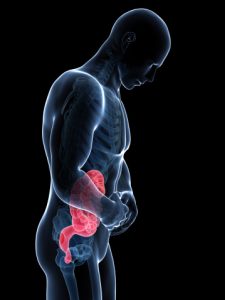A friend of mine shared that her husband recently had his gallbladder removed but he still has gastric distress.
I asked if he were taking any digestive enzymes to replace those his gallbladder used to produce. She looked confused. No one had told them that he should do anything different after his surgery.

I gritted my teeth as this is one of my pet peeves: when doctors remove organs, intestines, or other body parts without notifying the patient of what role that body part played to create health. Then they send the patient home without adequately informing him or her that this removal now necessitates a lifetime of proper supplementation and/or dietary changes in order to achieve complete digestion, efficient absorption and assimilation of nutrients from our food, and/or elimination of toxins.
The human body is a wondrously intricate and complex organism. Each piece has a role to play in maintaining life and health. The gallbladder’s role is to contain bile produced by the liver and then secrete it as needed to digest fats.
Yes, we need fats in our body! Fats are essential for absorbing fat-soluble vitamins like A, D, E, and K. They also provide energy and act as structural elements of cell walls.
Not trans fats, though. Stay away from those.
After losing a gallbladder, and beyond the risk of deficiencies which can affect the immune system, the eyes, the liver, and more, there is the very real and debilitating side effect of irregular bowels, cramping, and diarrhea.
For my friend’s husband, I recommended initially addressing his bowel health on two fronts: digestion and supplementation.
To improve his digestion, I suggest taking two plant-based digestive enzymes: PAN and BIL. PAN assists in all-around digesting of food, while BIL is more focused on digesting fats in particular. He should begin with one of each every time he eats, and work his way up to taking two of each every time he heats.
In terms of supplementation, we have to think about vitamins A, D3, E, and K. I always think it’s preferable to get vitamins and minerals from foods rather than processed supplements. Fish oil is a good way to get bioavailable A and D. K is found in leafy greens and cruciferous veggetables; E is in foods including whole grains, almonds, avocados, sunflower seeds and sunflower oil.
If you take these vitamins as supplements, be sure to take them when eating fats so that they can be absorbed and assimilated.
As I told my friend, there is a lot more he could do to help his body thrive in spite of the loss of the gallbladder. If you’d like to explore what else can be done to achieve health after losing a gallbladder, use my Contact form to claim your free initial phone consultation and we’ll get it scheduled!

